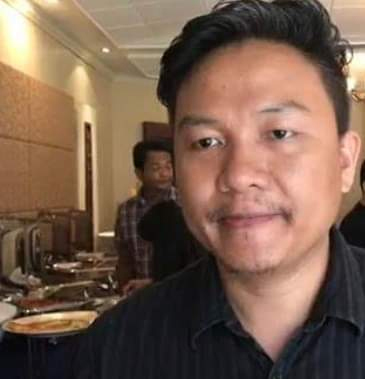Let’s not accept disinformation in media as normal: 10 things a journalist can do
Fake news and disinformation
Let’s not accept disinformation in media as normal: 10 things a journalist can do
JASON A. BAGUIA
Dec. 2, 2019
Based on his talk at the Cebu Citizens-Press Council (CCPC) media forum during Cebu Press Freedom Week 2019, held at MBF Cebu Press Center in Sudlon, Lahug, Cebu City last Sept. 19, 2019. The other speaker of the forum was Fr. Ramon Echica.
THERE are better things for journalists and their audiences to do than accept that the world has entered a post-truth era or that what comes out of the press is fake by default.
Disinformation becomes normal only when people sit back and do nothing to promote a culture of truth-seeking and truth-telling.
Fake news, spread at internet speeds may have been used by various entities to secure electoral victories around the world in the last half decade, but here are some things we can do to foil machinations that try to give lies the final word.
(1) Know your fact-checking resources. On Facebook, look below the link to any news story to see if it has been flagged by moderators for being deceptive. Alternatively, check the veracity of a claim through websites with fact checking resources such as Snopes, Vera Files, and Rappler.
(2) Remember that social media is not the entirety of the internet. Cultivate a habit of visiting legitimate news websites instead of relying solely on social networks for news and information. News websites continue to submit to the discipline of verification and to present stories in the order of their importance, in contrast to social networks where reports are subject to the spin of those who post links and are ranked according to measures of audience engagement.
(3) Remember that social media is not journalism, though journalists use social media. Mere possession of a computer keyboard and camera does not turn you into a journalist and photojournalist. Be wary of social media contacts and accounts that deliberately or otherwise pass themselves off as news outlets, and refer to links from established news sources when discussing matters of public interest.
(4) Remember the humanity of every person in the media ecology. Disinformation thrives on character assassination and glorification. Refrain from sharing stories that hysterically demean or exalt public figures. These tend to be propaganda that reduces persons to their real and imagined faults or grabs due and undue credit for them.
(5) Be mindful of rhetoric and know how to analyze discourse. Is the campaign against the scourge of illegal narcotics accurately called a “war on drugs” or is this phrase a shrewd attempt to legitimize killings, including of innocents that in fact are tantamount to disproportionate use of force. Is not the language of war being used to justify the indiscriminate ending of lives in addressing the prevalence of drug addiction?

6. Know the political economy of the media. Legacy media organizations are known quantities. Knowing who owns them and the politics of the owners, the public can gauge the limits of their critical reporting and commentary. It is not easy, however, to determine who are behind new media especially fake news websites. Pay attention to research and journalism that exposes these financiers and prime movers. Knowing who they are can enable comprehension of the agenda behind their media content.
7. Know how to spot fake news. Where many fake stories are concerned, grammar is atrocious, photographs are un-sourced, writers are anonymous, sources are fictional, webpage layout is sophomoric, website names are comical, and editorial boards are reclusive and publicity-shy.
8. Read history with a critical eye. Has a historical narrative under siege already left room for readers to be critical of its victors, losers, and fence-sitters? If this is the case, who stands to benefit from any campaign to belie it? Does an alternative history or historical revision lead to greater pluralism and social harmony, or does it merely polarize voters and enable a few to divide the spoils of electoral conquest?
9. Think long-term when handling discourse and information. When words are weaponized to exhaust dissenters and silence alternative voices, a regime is being propped up by a rickety throne of half-truths, and its supporters will find themselves by the wayside as soon as the regime — just like every dishonest one does — implodes.
10. Leave your echo chambers, burst your filter bubbles. Everyone praised the emperor’s new clothes until a child pointed out that he was making a spectacle of himself in the nude. The whole world thought the sun revolved around the earth until Nicolaus Copernicus posited that planets orbited the sun. Deceivers and their fake stories live off an audience’s need for stability and dogma amid the complexity and dynamism of socio-politics. But an illusory sense of stability — free from those who would challenge one’s views — is grossly unethical and unsafe. One enjoys it while the world burns, and fires take no sides. 

Jason A. Baguia
Jason Baguia taught at U.P. Cebu College, from 2012 to 2019, when he wrote the article. He now works with Center for research in Communication & Culture at Catholic University of Portugal.
